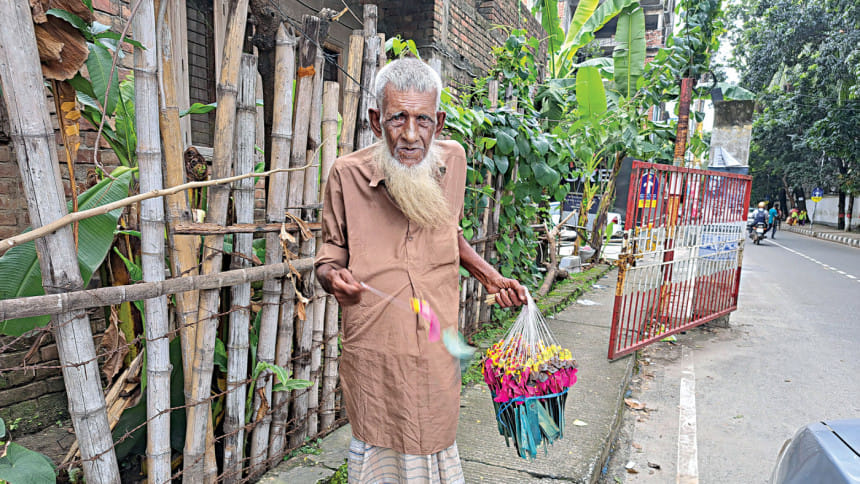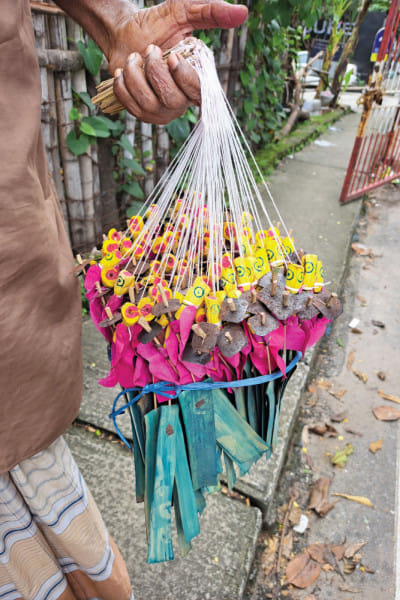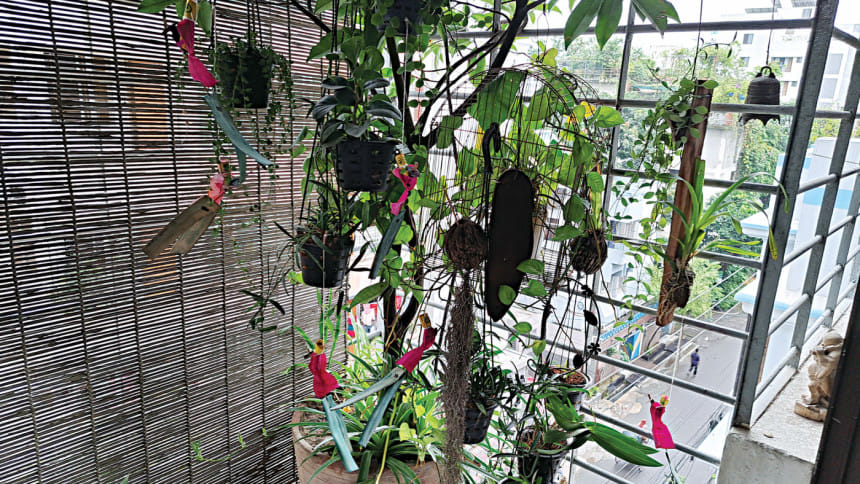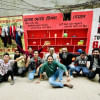Nizamuddin’s journey with ‘feska pakhi’

Every day while going to work, I spot a frail, old man selling a bright-coloured traditional toy. He always wears the same clothes -- a tattered, faded brown long shirt and an old lungi. His regular place is on a road in Uttara Sector 1, sort of a blind corner that you cannot see while turning your car. His jaded appearance does not help to notice him in that busy lane, though he tries hard to draw your attention by spinning the toy he sells.

Nizamuddin, the old man, is 81 years old. He calls the toy "feska pakhi" in his colloquial tongue. Hung by a thread the magenta thin paper doll with a yellow-coloured head made of shola or Indian cork and a green palm leafy tail is joined by rusted old tin pieces. When you twist the tail and spin it, the doll makes a mild tinkling sound as it dances in the wind.
This toy is my deshi wind chime. I hang them among my balcony plants and watching the doll swirl in the breeze lights up my afternoons.
Nizamuddin's loss of muscle strength with age contributes to the curvature of his spine. He cannot stand at a stretch and needs to sit down to rest quite often. He takes the bus from Gazipur Chourasta to come to Uttara to sell his doll.
"My boss Nogendro makes these toys; the cost price of one such bird is about Tk 3.5. I sell them for Tk 10 and share the profit with him. I earn about Tk 150 to Tk 350 a day depending on my sales. In spite of the fact that I sell an artless local traditional toy, school children do fancy my multi-coloured bird and I have a steady income except on a few bad days," he says.
He wishes to gather Tk 3,000 someday and start his own business, then he would not have to share his profit. Such a modest wish to try and make his life better in this old age weighed deep on me.
With this meagre income, he supports his wife in the village and fends for himself. "I do not have a son, if I had one maybe he could help me in my old age. I have five daughters, though they are all married off but I still have to pay the dowry of my youngest. If I can start on my own then maybe the financial pressure on me would lessen," he says.

His resilience and spirit for life humbled me. My complaints of how cruel my life is hold no ground in regard to Nizamuddin's. Standing under the burning sun, vending a paper toy, and earning just a few hundred takas a day, he looks forward to saving and starting afresh at this advanced age.
I compared my despair with his enthusiasm and realised that happiness is a very simple emotion yet we turn it into a complex psychosocial struggle. I feel the grittiness and endurance of people like Nizamuddin fuel this 400-year-old city. His spirit is contagious and reflects the vivacity and dynamism of Dhaka, for this metropolis accommodates optimists like Nizamuddin, who lends his strength to the city, and pessimists like me, who negates the city.
Yet, Dhaka gives each one of us a reason to smile.

 For all latest news, follow The Daily Star's Google News channel.
For all latest news, follow The Daily Star's Google News channel. 








Comments